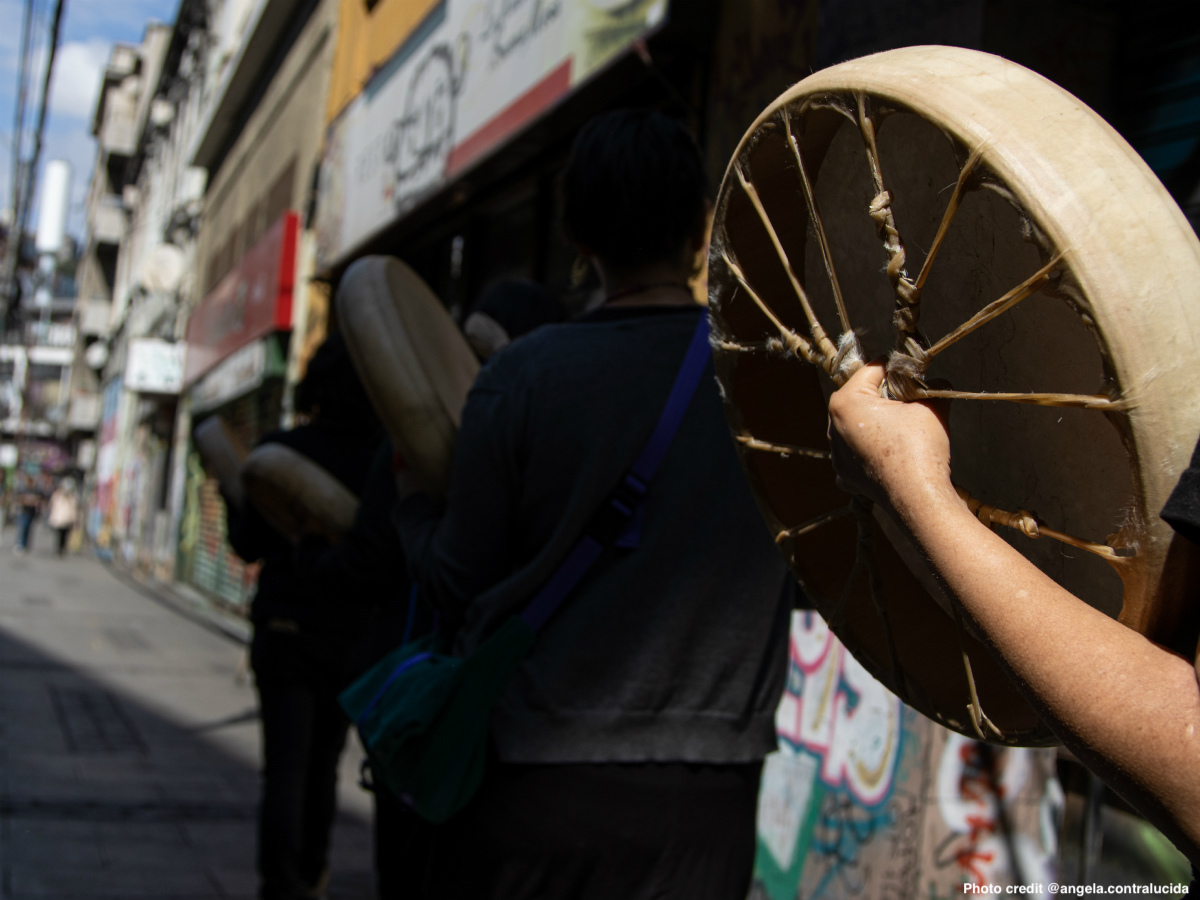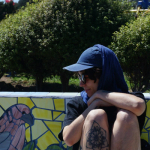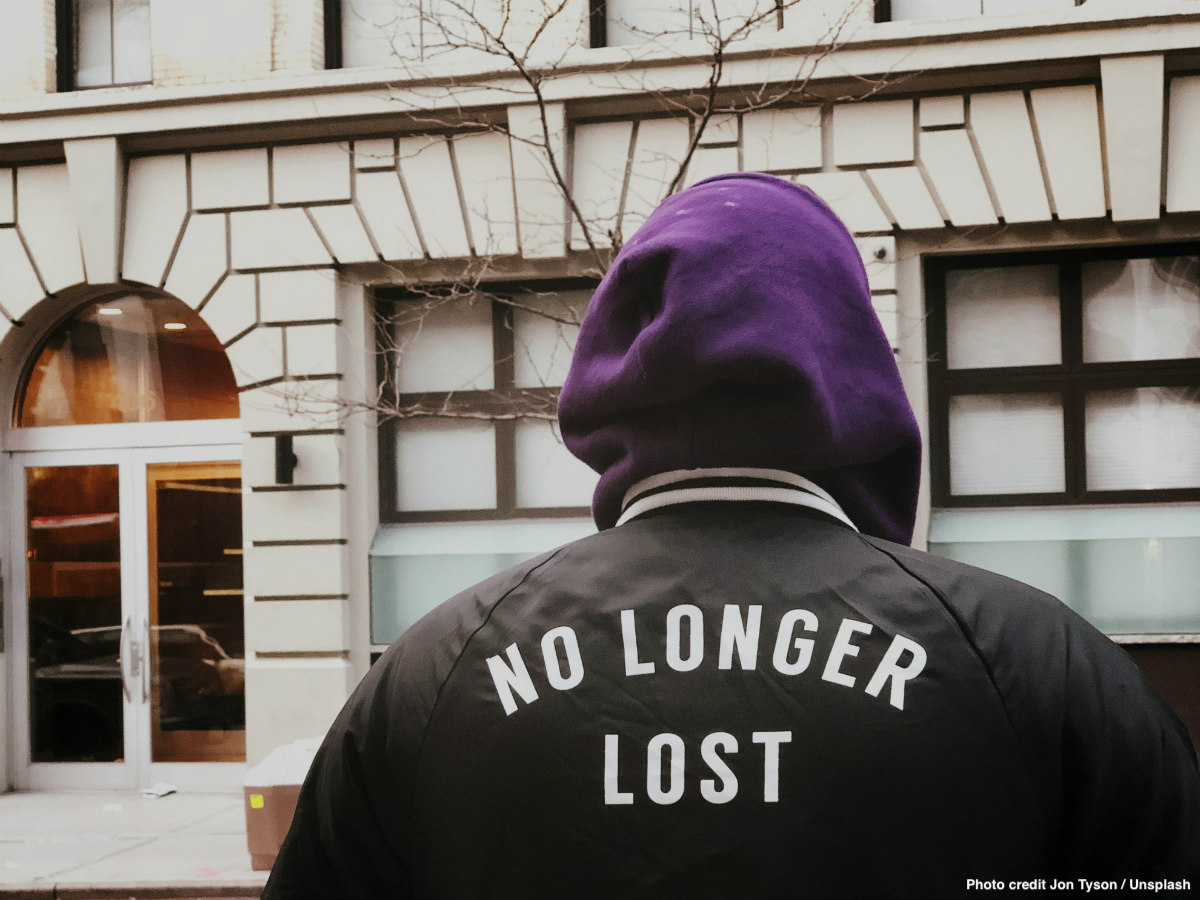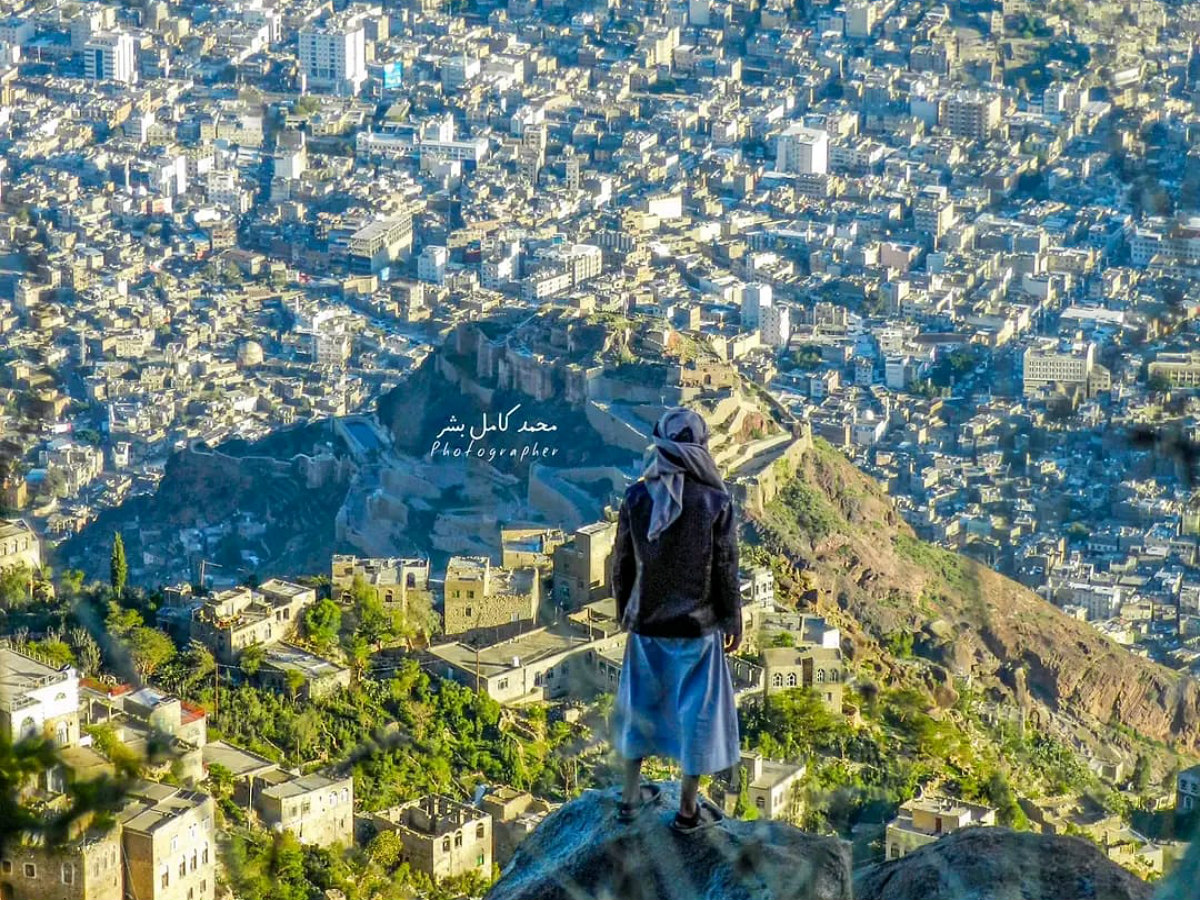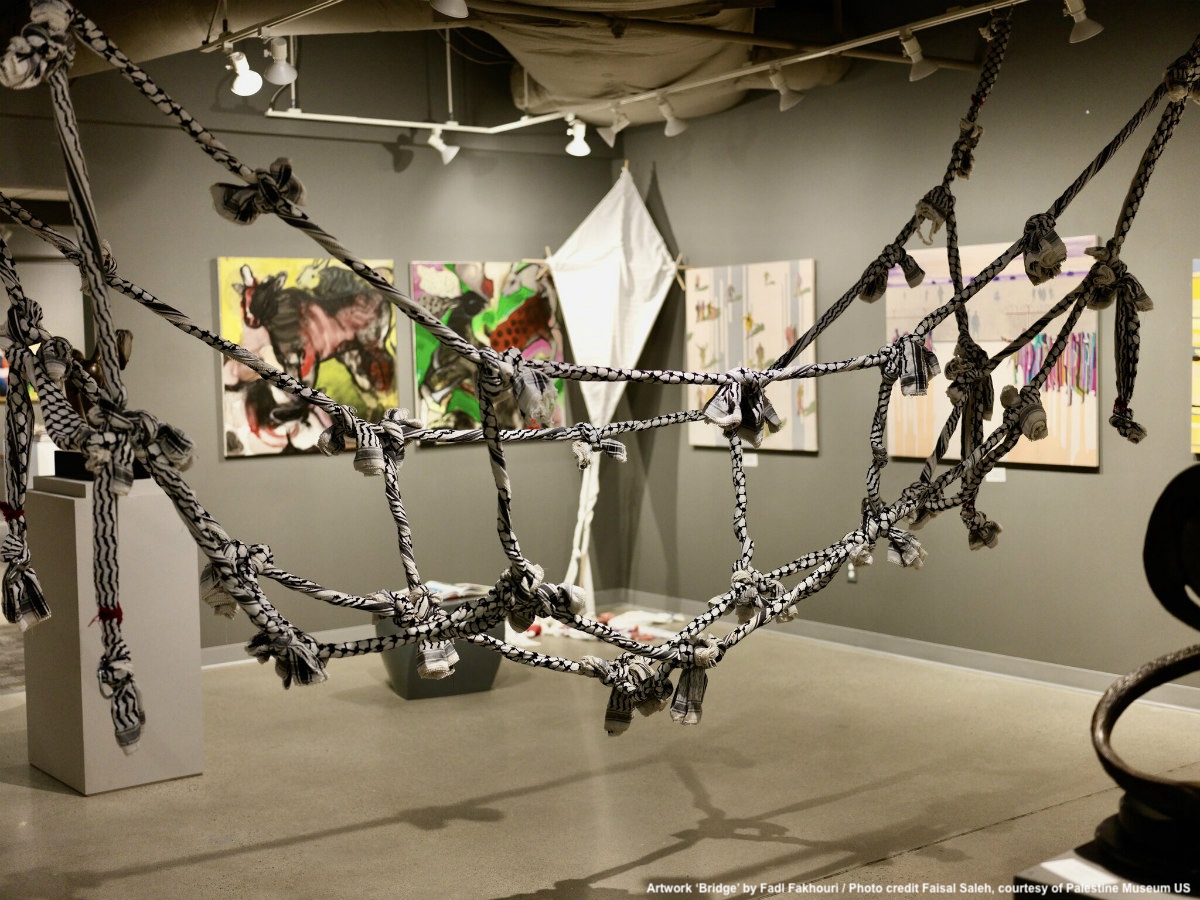Shamanism has been how the West names what was beyond its understanding. The term comes from the word xaman in the tungu language, which means those who know. Shamanism is easily associated with all native people, who work with the othering, altered states of consciousness, drums, plants and medicines; before religion, colonization and urban life ever existed.
In other words, shamanism is the ancestral wisdom of intermediaries between the spiritual and the natural world. But it has transpired to the urban world, which is increasingly receptive to emotional support and the desire to explore beyond the evident.
Since the pandemic, and still experiencing its ravages, all societal tissues have been modified and disrupted. We have become neurotic, individualistic and authoritarian, but there are also cycles, times of euphoria and times of introspection, tells me Niza Solari, a shamanic practitioner member of Espacio Circulante.
In the midst of Valparaiso, Chile, on Calle Condell, an avenue of comings and goings at the port, resides Espacio Circulante, a place of shamanic practice and urban healing, made up of various women of different gender who, organized, promote the medicine of urban shamanism.
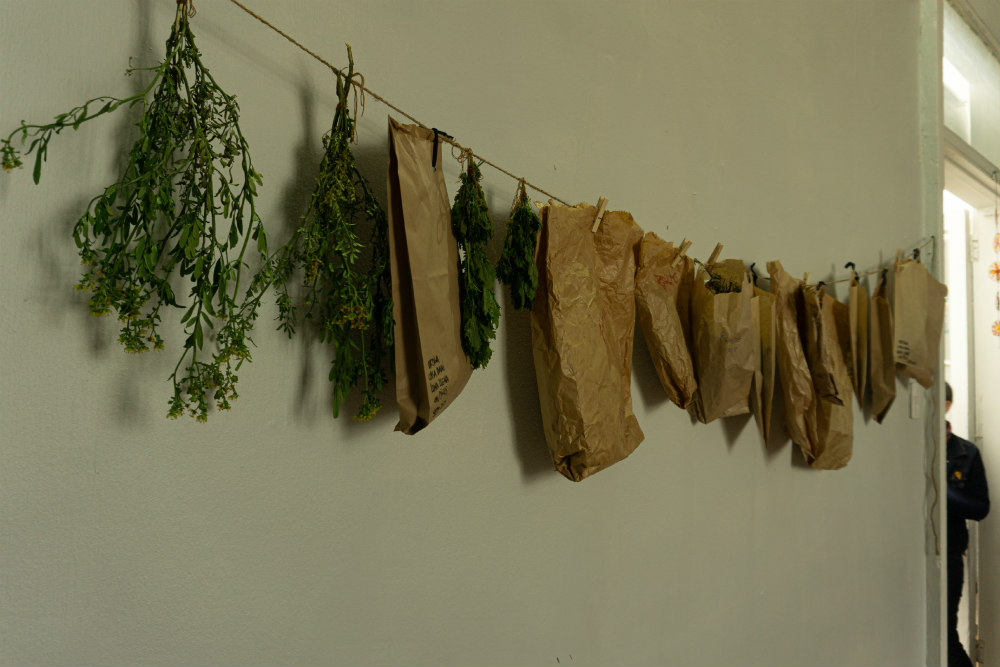
It was in 2012 when the project, Espacio Circulante, began to take shape in its first residence, an office in an old building in Huito, “where we started with borrowed money for a downpayment,” says Solari.
But this dream began perhaps a decade earlier, in 2002, when Solari, in a period of illness and death, encountered shamanic training studies and entered the practice, after having gone through other training experiences in self-care and allopathic, spiritual, traditional and ancestral medicine. Also, Ariadna Labbate, friend and zazen teacher, read an astral chart that told Solari, “you are not sick, what happens is that you have to take your power.”
The crisis and death then as a hinge, as an experience, triggered a concatenation of events. Solari says that, at first, she did not pay attention to what was already being revealed in her life. There were already signals and events which were concrete enough to change course. Yet it was at one moment that she realized what was happening, and left behind what she already had, to materialize this new dream. She convened a group of women therapists to create a space, where urban shamanism is heart and breath.
In this manner, they began to weave a network with friends and colleagues, with the conviction of creating a space for gathering, creation, and medicine, in the city, far from the mountains, jungles and other rural areas, territories of native people, but in their own context as inhabitants of the city.
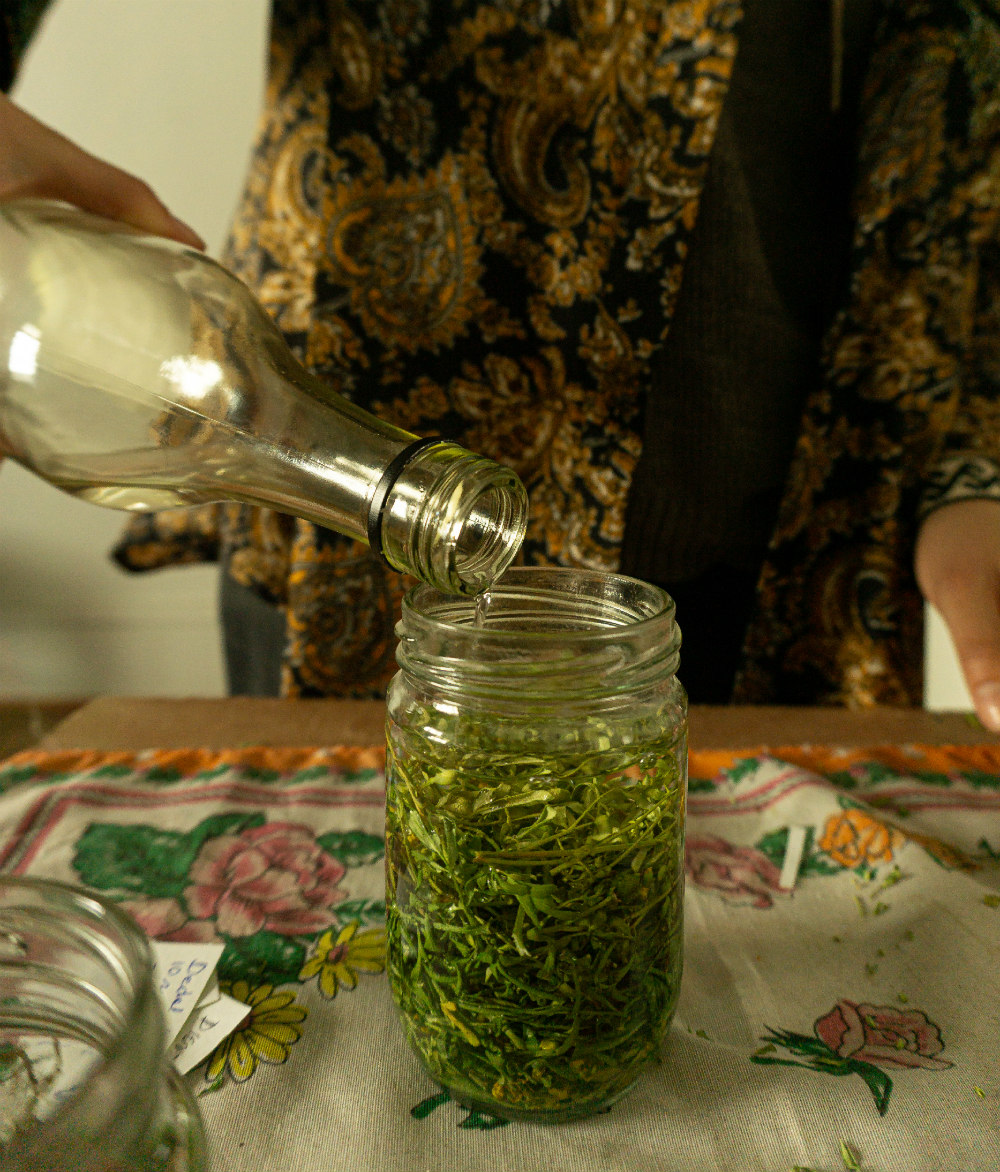
Their dream began to grow, firstly harmoniously, and then the disagreements, the discussions, the amalgam of opposites came upon them. But they were all welcome, since the shamanic practice works on detachment and gaze, “what matters matters, and the rest is part of what is done”, says Solari during our conversation. She spells out the idealization around collective organizations and faces the intimate reality of working in community.
From the beginning, back in 2012, great instructors from different practices and territories began offering workshops. An important part of the conversations about the handling of the space was to ask them to adjust the remuneration for the workshops, because this is Valparaíso, it is not Santiago, and the socioeconomic and energy framework is different. In order to expand knowledge, it is necessary to understand the context in which we are. As a result, the Terapias Populares (or Popular Therapies) were born; they are monthly sessions that take place every first Saturday of the month, open for anyone who wants to participate. They include a variety of practices that Espacio Circulante regularly offers, but they are more affordable brief sessions as introduction to the available therapies.
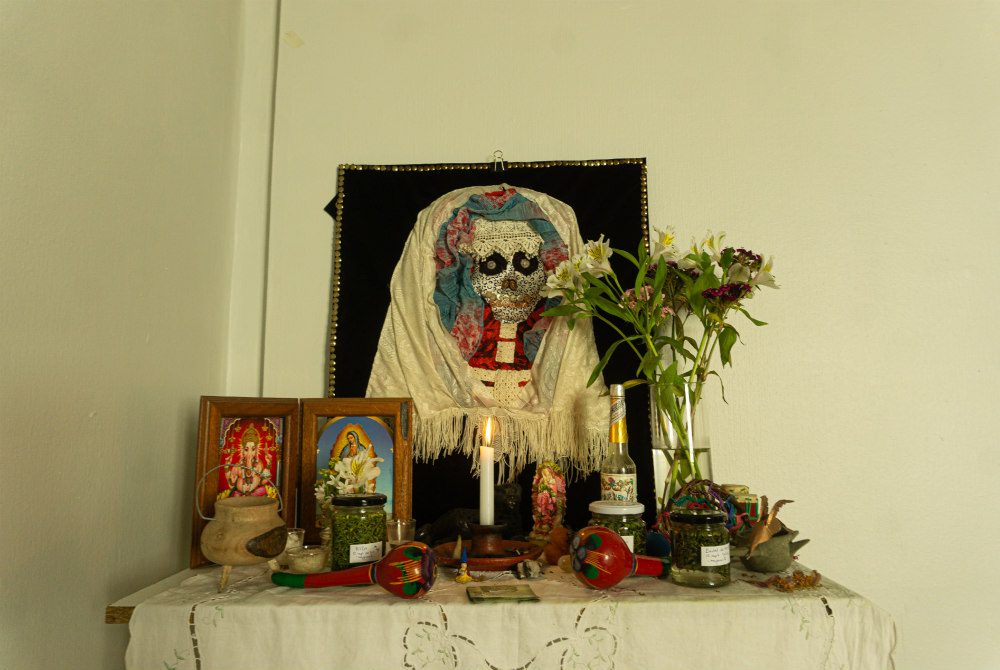
In one of those Terapias Populares, they ceremonially celebrate the Tambor Abierto or Open Drum. Music, and specifically the drum roll, is central to the spiritualist practice of shamanism, which allows the players and listeners to achieve an altered state of consciousness or “go on a journey” due to its neurophysiological effects. The collective gathering of a drum-induced shamanic journey is guided by one of the practitioners of Espacio Circulante. Those who attend the gathering, travel through the beat of the drum to seek answers, ask questions, or open new paths. Once the trip is over, the participants share some words, feelings or reflections, creating a space of intimacy, introspection and allowing the experience to macerate.
Month after month, year after year, the gathering for a drum-induced shamanic journey has meant to create common spaces of care. It offers urban dwellers a possible window to accompany difficult personal and social processes.
By weaving what you are taking and learning, you put it in dialogue with you. Life is seeing what it’s all about, life is an adventure.
The pillars of the practice of Espacio Circulante range from feminism and ecology to activism and healing. In the middle of the revolt (a social movement that detonated on October 18, 2019), open drum instances were conducted, to hold, accompany and scrutinize that collective moment of euphoria, hope, transformation and wound that Chileans were going through. In the words of Solari, the drum-induced journey provides immediate well-being. It holds you, settles and relaxes your body, it surrenders, and then it synchronizes. Discomforts appear, images and memories come to life, things and ideas emerge, to untangle or to let them go, it is affection, it’s a breeze.
The generosity of the drum relies also on its simplicity. Nothing else than dedication is needed, it does not require previous knowledge, exacerbated fasting or other things which could be unattainable in our urban context. Even with a pair of headphones or speakers we can access a shamanic journey through the recording of the drum beat. It is autonomy for self-knowledge and well-being.
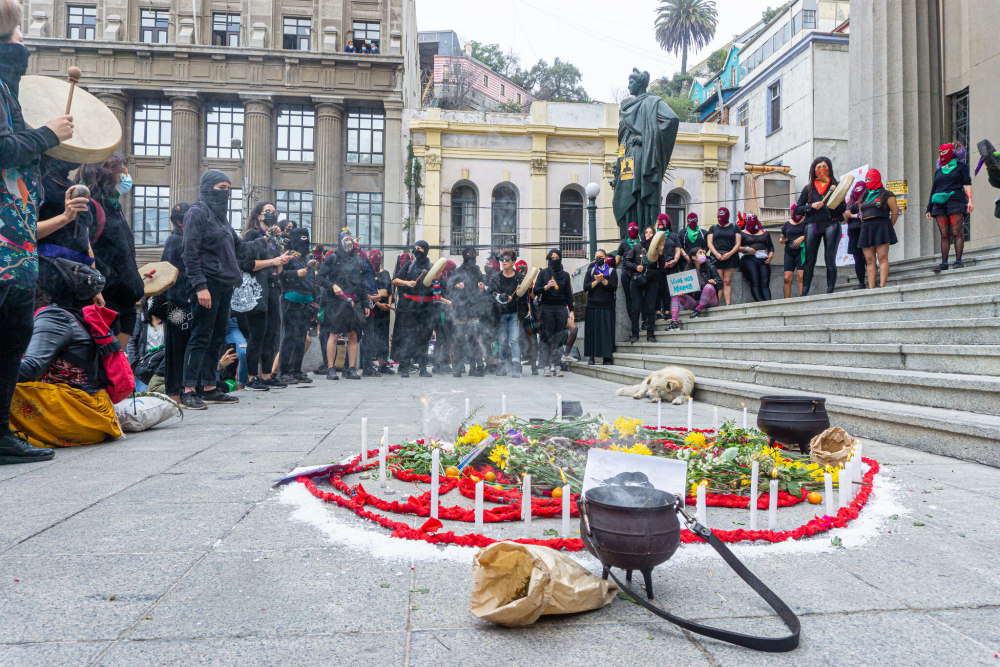
Soon Espacio Circulante will celebrate eleven years of popular therapies, practices, workshops, and rituals on the street. Eleven years of readjustments, disarmament and new members, and I can’t help wondering, how does a self-managed group endure for such a long time? It all comes down to the challenge that is to meet and organize, commit, be and let be. It is the pulse of the drum that feeds the intention of weaving this thread, “eleven years playing drums. It is the support, the canoe that leads, it is the refuge that sustains the practice and the body.”
It is also the importance of generating spaces to gather among human beings who specialize in various disciplines and knowledge and create new ways of accompanying and expanding urban imaginaries, thereby generating spaces of containment and care, of emotional transition. Espacio Circulante is a path that has no goal, but pure discovery that is revealed as they inhabit the space, experience it and venture, and it doesn’t happen in solitude, but in community and a continuous practice of trial and error. The practice of urban shamanism gives you imperfection, but in praxis, each of us discovers her/his own expertise, Solari insists.
Then I ask Solari, how is shamanism lived in an urban environment? and she profoundly replies: “Independent of the context, it is the daily practice of diving into alternate parallel realities, it is a system of knowledge, and from there, seeing and living life as an organism that is highly interconnected and that spans time and space. It refers to becoming aware of the constant and permanent energy that we are, of expanding the doors of perception, and thus bringing and sharing tools for the moment we are inhabiting.”
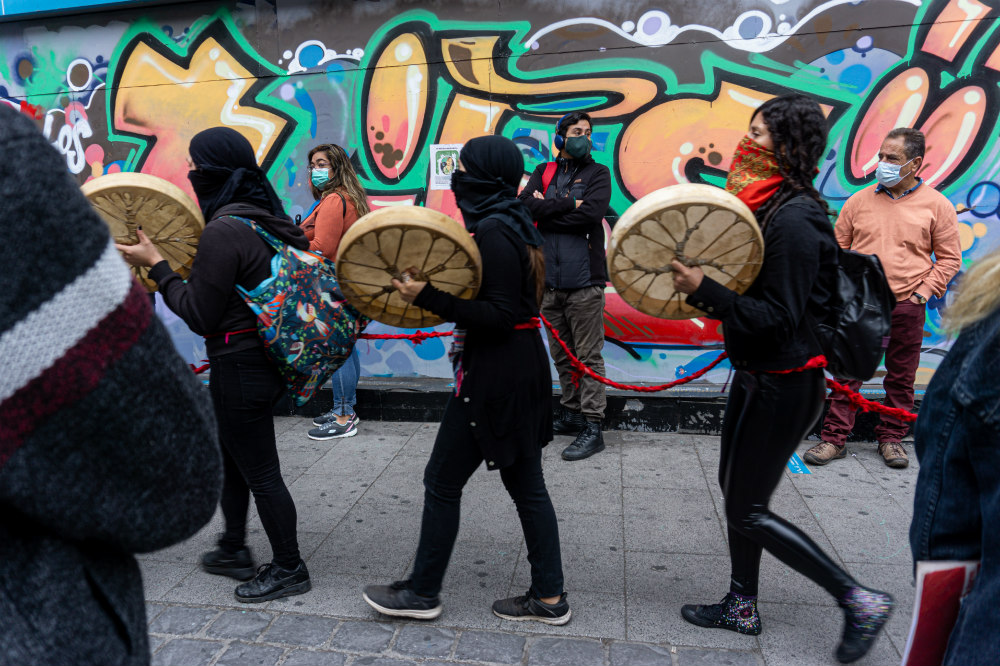
Personally, I learned about the practice of urban shamanism in 2015, through a shamanic cleanse, a practice in which the electromagnetic field is cleared through the pulse of the drum, smoke and herbs. Then I experienced a collective drum gathering, where we traveled, on that occasion, to seek medicine for communication. Years later, through the same Espacio Circulante, I participated in a shamanic drum making workshop. To this day, playing drums is the practice that makes the most sense to me in my daily life, it brings me back home, it helps me with daily tasks, and others which are a little more challenging. When I play the drum, I know that I am not alone, and that the invisible as well as the tactile accompanies me at all times.
Espacio Circulante continues to promote the shamanic practice in the present, with the conviction that it is possible to insist on imagining new ways to expand the knowledge and medicine of urban shamanism. There is a possibility of another way of living, of cultivating the creative path to fight the oppressions to which we are subjected to daily, and that the invisible, the spiritual and ancestral force are all a trench to defend and cultivate. “By weaving what you are taking and learning, you put it in dialogue with you. Life is seeing what it’s all about, life is an adventure.”
